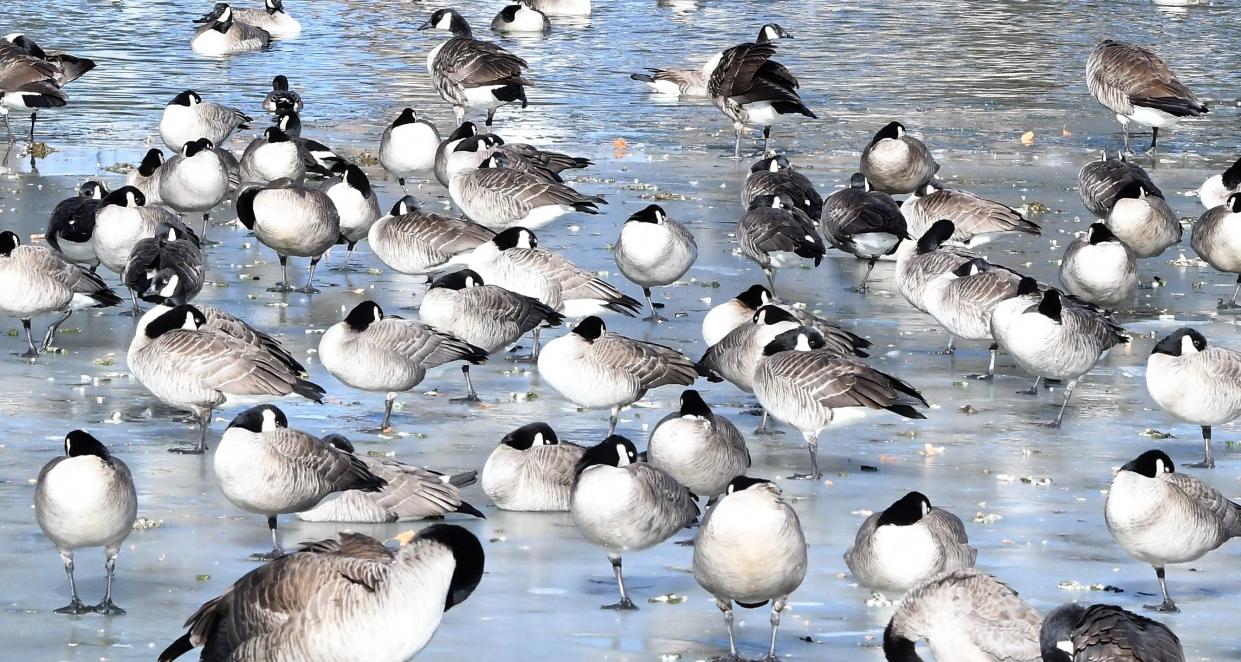What to know about the avian flu with two cases confirmed in Pueblo County

Avian flu has been confirmed in two species of birds in Pueblo County within the last month, according to data from the Colorado Department of Agriculture
Cases include a Canada goose, which tested positive for the disease on Jan. 10, and a great horned owl, which tested positive on Dec. 27. Both cases were confirmed in wild birds and no humans have been affected.
Colorado Parks and Wildlife Spokesmen Bill Vogrin said CPW does not count every case noted within a given county.
"Once we confirm that a species is infected with avian flu in a certain area, then we stop counting," he said. "We're not going to have counts for exactly how many birds. We know, for example, that 600 snow geese washed up in a reservoir in Lamar (County) in November, and the samples we sent in tested positive."
A new strain of avian flu, otherwise known as HPAI, or highly pathogenic avian influenza, was initially detected in northeastern Colorado in March 2022.
Pueblo health news:COVID-19 testing site at Pueblo Mall closes: Here's why and where to get free tests
Unlike prior strains of HPAI in North America, this particular strain is causing widespread mortality in somespecies of wild birds, particularly in snow geese, raptors and vultures, according to CPW.
The current strain also has caused mortality in several mammal species, especially skunks and foxes.
In late November 2022, CPW began receiving increasing reports of sick and dead snow geese in northeastern Colorado associated with large-scale HPAI mortality events, CPW said.
Personnel from the state wildlife agency documented mortalities in excess of 1,000 birds on multiple waterways in Morgan and Logan counties. Shortly after, large-scale mortalities began occurring in southeast Colorado in Kiowa, Bent, Otero, and Prowers counties.
Total snow geese mortality numbers are unknown, but mortality reports range from a single animal to more than 1,000 dead geese on a single reservoir. These mortality events coincide with fall migrations of birds leading to large congregations of snow geese in Colorado.
More:'Like an ambush': Pueblo city councilors detail how failed abortion ordinance came to be
In a social media post Friday, the Pueblo Department of Health and Environment urged Pueblo residents to take precautions.
"If you see a dead bird, do not touch it, and keep your pets away to protect them," the health department's post said. "Wear gloves if you are handling birds for recreational or agricultural reasons and wash your hands after."
While rare, it is possible for avian flu to infect humans, making it important for residents to protect themselves.
Symptoms of the disease in live birds include swimming in circles, moving slowly, incoordination (may appear drunk), and head tilt or inability to lift the head. Most affected birds are seen on the ground, but occasionally sick birds may be seen flying low and alone.
The wildlife agency also urges residents to contact their local CPW office if they see three or more dead birds in the same area, or encounter live birds showing clinical signs of disease.
The Pueblo office, located at 600 Reservoir Road, Pueblo, can be reached at 719-561-5300.
Questions, comments, or story tips? Contact Justin at jreutterma@gannett.com. Follow him on Twitter @jayreutter1.
This article originally appeared on The Pueblo Chieftain: What to know about the avian flu with 2 cases confirmed in Pueblo

